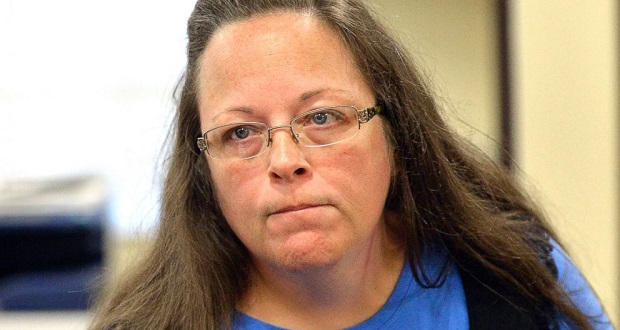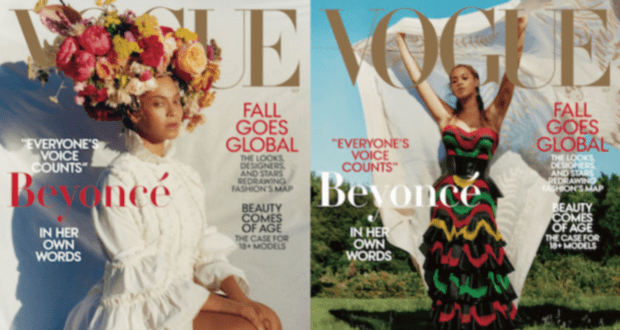
When brainstorming for this series and debating whether Millennials should be considered the dominant or non-dominant perspective, our team did not find a straight-forward answer like we did for the previous explorations on fragility relating to race and gender. Generational fragility is different from the other topics in that it is contextual and constantly changing. As Mary-Frances discussed in the previous post, “Baby Boomers, to some extent, are still in the position of power—the dominant group—even though the balance of power is shifting rapidly.”
Millennials, as the group growing into this position of power, have inspired countless of thought pieces and discussions centering around a few central ideas that are often conflated: burnout culture and emotional fragility. In other words, when we generalize Millennials, we often do it in two main ways: millennials are lazy, and millennials are “soft.”
I struggle to make sense of the “millennials are lazy” stereotype because while it is so pervasive, it clashes with the idea that we are a part of a pervasive burnout culture. Acknowledging that a stereotype need not bear any truth for it to be widely shared, I still wanted to understand why it continues to be a part of the discussion on the Gen Y generation. Similarly, how is it possible that we have a millennial burnout culture against the backdrop of a workplace where older generations perhaps view us as lazy?
I thought back to all the times in which I had conversations with my friends while job searching, flagging jobs based on how much meaning they brought me: “Well this one doesn’t pay as well as the others, but at least I wouldn’t be selling my soul to do it.” And I also thought back to the conversations with my parents, doing the same thing in a language they understood better: “This one would bring me a lot of stability, but I don’t know if it would make me happy.” It seemed like there was a disconnect because my friends understood perfectly that I was looking for a job that would tie into my larger purpose in life, whereas my parents viewed jobs as a Monday through Friday commitment that helped pay for my purpose in life.
Reflecting on my personal experiences, Mary-Frances’ GIF anecdote, and the popular BuzzFeed piece, “How Millennials Became the Burnout Generation,” I started to consider the ways in which millennials do work hard, perhaps in jobs and in ways that are not easily identifiable to generations before us. Is it possible that millennials do, in fact, have a strong work ethic but are guided by different values—like creating social good and maintaining a work-life balance—that make our outputs look different?
I think many of the conversations around this generational gap are missing a look at the foundational values that motivate each generation as well as the different social-political climate that helped shape our worldviews over time. These considerations are important because in building common ground around what it means to “work hard”, we’re better positioned to delve into the other millennial stereotype: millennials are soft.
We all hear it in various forms: “This generation is a bunch of snowflakes”; “Back in my day, we let those comments roll off and keep going”; “Millennials are too fragile.” The assumption is that this rising generation—a large portion of whom are now leaving the college setting and some of whom are already rising the ranks to leadership roles—is more emotional and less resilient than any generation before us. Millennials supposedly suffer from an emotional fragility so great that it is stifling open discourse; our need or desire to push concepts like political correctness, space spaces, and trigger warnings are censoring the very conversations we need to be having.
As a Millennial, these concepts of political correctness, safe spaces, and trigger warnings have always been incredibly clear to me, as are their need to be integrated into our social fabric. I quickly and fiercely defended them anytime someone dismissed them as symptoms of a harmful infantilization process happening in society. I did this because I believed that anyone making this argument was standing in the way of the path to creating a more equitable, just, inclusive world.
Of course, this is entirely too simplistic. And in order to get to a place in which I can evaluate someone’s rationale, motivations, and argument, I must first suspend my judgment and emotional reaction. Before I can ask about another person’s reaction, opposition, or our ability to find common ground, I must ask myself, “Why do I have such a visceral reaction to rants about millennial snowflakes? Why am I so quick to dismiss any of these related arguments? Why do I automatically mentally categorize people who makes these arguments?”
In order to get to a place in which I can evaluate someone's rationale, motivations, and argument, I must first suspend my judgment and emotional reaction. Share on XThis is the sort of self-reflection Mary-Frances referred to in her piece that lays the foundation for any subsequent conversations. Once I understand myself– my values, my worldview, my biases– I am better prepared to build shared meaning with others. In this context, and when the conversation is very polarized, building common ground may mean I have to start small. For instance, in approaching the “millennials are fragile” conversation, we can both agree that everyone wants to feel safe, even if how we define that safety is different. For Millennials, the definition of safety has expanded to include psychological safety, which for the many generations before us facing immense physical safety concerns, this may have been a “luxurious” concern.
Similarly, building shared meaning around the “millennials are lazy” conversation may also mean we start small. For instance, we can both agree that “working hard” is virtuous, though we may have entirely different understanding of what “working hard” means. And while we may even agree on that, we may have entirely different understandings of how central work is to our lives. Millennials value the separation of work and life, and our desire to have this work-life balance frames the way we navigate our every-day life. As Millennials grow into the dominant demographic in the workforce today, having these conversations will be increasingly important. In looking for and building this shared meaning, we respect and honor each person’s unique experiences and burdens that brought them to this position.
Where does that leave us then? The road to dismantling harmful power structures is very long, and it does require leaning in to conversations that may be difficult to have, particularly depending on your intersecting identities. So, in addition to the self-work Mary-Frances rightly prescribed in the previous post of this series, we must also ask ourselves when, how and who is best to engage in the conversations to drive us forward. We need people from across generations to share their values, ideals, experiences, and motivations to find common solutions to today’s problems.
We must also ask ourselves when, how and who is best to engage in the conversations to drive us forward. Share on X


















Millennials have given those of us in Talent Management, especially in service-driven organizations the opportunity to hire people that connect to the work in a very personal way. That intrinsic motivation produces an empathetic approach in communication, problem-solving, creating experiences and even leadership.
At a recent conference, I interviewed students on the verge of graduation. During behavioral interviews, the grads commonly explained that in their service decisions and problem-solving they thought about the impact of their interactions on a customer’s day. The stories that they shared were full of emotion yet there was a strong understanding of business goals.
The people that I was interviewing overwhelmingly understood business and were seeking an environment that would not just allow them to serve their purpose but would encourage them to do so. They had researched and knew which companies had a reputation for being “safe” for them in this ever-changing society.
As a leader in Talent, that was a gift. When we’re sitting across from a Millennial, we’re wise to remove judgement. Ask questions to find out which opportunities and responsibilities will encourage a millennial to go above and beyond daily and to stay with a company long-term. Really listening and remaining objective helps us put the right people in the right places. Millennial emotional fragility isn’t a detriment, nurtured effectively, it’s a necessary element in leaving a lasting impression with your customers.
I hear what you are saying, and see you satisfaction in it. When I worked in retail for a bit. I remember spending a great deal of time thinking about the customer as a person, and how I would like to be treated, and ethics were a large part of that. When my middle daughter worked in retail she had like 6 managers who constantly reviewed everything she did, and the focus was purely on driving sales. Marketing was much more scientific and driven, the products were sorta foolish cosmetic principles that one was supposed to explain to the customers, kinda today’s snake oil. Modern business spies on people, violates their privacy and scientifically pushes their products which are increasingly just crap. I can imagine how people emerging into this sterile environment today talk a lot about how they want to do good, it isn’t as though they will actually be able to do it.
Being weak is sorta the objective isn’t it. That is what progress does. You have a cell phone. If my mother wanted to get some information to or from the neighbour she had to go next door. But we have progress. My elders who were mostly born in the 1890s literally walked the 5 miles through the snow to school and back every day, but when we wanted to take our teen to the same family farm to stay for my dad’s funeral, during a period of warm weather, though not all the services were connected, camping in a house, so to speak, my other kids reported us to Child Protective Services.
Or by another metric, my 1895 elders, got blown out of the trenches in 14-18, the 1925 group got bombed by the Nazis, we grew up in pretty nice conditions in the 60s, and for some reason the current ones are crazy, despite the fact they were pretty high performing students and hard working.
I don’t know what you call that, but when you look back at generation 1895, 1925, 1959, and my kids from 1997 onward, something has changed. And being less fragile is not part of it.